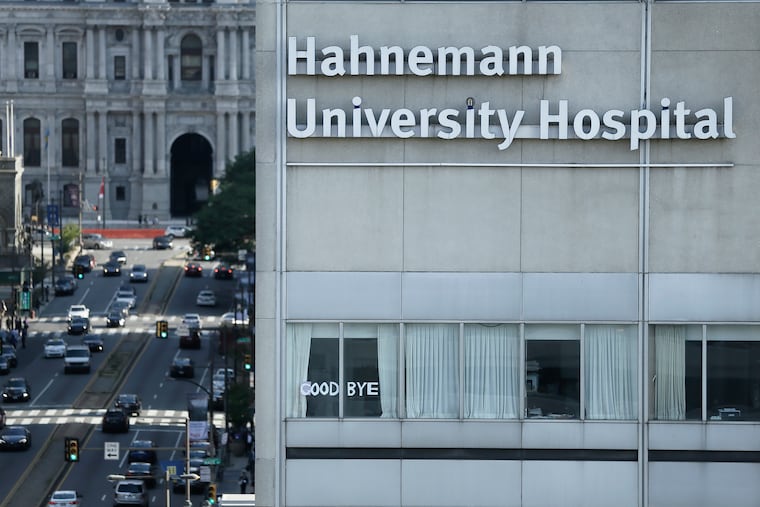How will Hahnemann’s closure affect Philly’s opioid crisis? | Opinion
The loss of a health care system in Center City presents many challenges for patients and providers in the epicenter of an opioid crisis.

When a hospital closes in a U.S. city, it causes ripples across an entire ecosystem for patients. What happens to the medical care of patients who were about to have major surgery or undergo treatment that could improve their chronic ailment?
We’re seeing the fallout now in Philadelphia, since American Academic Health System LLC announced last month that it is closing Hahnemann University Hospital. The closure will displace more than 570 physicians who were in training as residents and fellows, the most significant displacement in United States history.
Hundreds of patients are left behind in a major city center facing a hospital closure, in dire need of help and care. According to data from the Centers for Disease Control and Prevention, Philadelphia County has one of the highest rates of drug overdose deaths among the most populous counties in 2017. The Philadelphia Department of Public Health reported 1,116 drug-related deaths in 2018, of which, opioids were detected in 939.
The challenge is clear: Why do health systems fail even in times when there is more engagement from patients and federal organizations?
First, inefficiencies in leadership and resources can lead to financial loss in major health systems. With the rising need for compliance, insurance pre-approvals, and higher standards of care, Hahnemann was not equipped with the ideal resources to create a health system that would succeed well into the 21st century.
» READ MORE: Philadelphia’s overdose deaths dip overall in 2018 but are ‘still at crisis levels’
Second, uncoordinated and fragmented care creates a loss for everyone involved. Often physicians at Hahnemann would struggle to get the details of medical cases to coordinate high level and cost-efficient care. This complicates the process to create efficiencies in modernizing and providing appropriate medical care. The infrastructure of the facilities was also deteriorating, and with very few resources, keeping an extensive system operational drives cost up. Given this situation, it was a challenge for Hahnemann to build a state-of-the-art medical system that would serve to educate, while also treating patients in a sound, evidence-based manner.
The majority of patients at Hahnemann were uninsured or covered by Medicaid or Medicare. More than 27 million people in the United States were uninsured in 2016, and this is due to non-expansion of Medicaid or because they simply did not have insurance for a variety of reasons, including both financial and societal barriers.
Many of the pain patients treated at this hospital had a preexisting history of opioid use disorders due to the overwhelming prevalence of these substances in Kensington and other neighborhoods. A public health crisis burden on an already weak health care system suggests that the system was overburdened with clinical and administrative hurdles. Collectively, when a health system fails, it can influence patients and explain why U.S. life expectancy has, for the first time in years, begun to shorten, driven largely by deaths from the opioid crisis.
The loss of a health-care system in Center City presents many challenges for patients and providers in the epicenter of an opioid crisis. There now is an urgent gap in medical care for patients to find new treatment centers, which poses new challenges and barriers, such as finding a steadfast provider for the referral, ensuring that the new provider partakes in a patient’s insurance plan, and transmitting medical records. These barriers unquestionably make it more challenging for patients to reliably and securely find treatment for their already complex conditions.
The health of a population requires the commitment of many stakeholders in Philadelphia, including the community at large and treatment providers. Creating sustainable health systems that move into the 21st century will require diligence, patience, time, and frontline champions of ideas that exist to serve these communities.
Anita Gupta, DO, Pharm.D., MPP is a board-certified pain physician and anesthesiologist and alumni of Princeton University’s Woodrow Wilson School in health policy. She has served as the vice chair of pain medicine and regional anesthesiology at Hahnemann University Hospital and Drexel University College of Medicine. She is an appointed member of the National Academies of Science’s Global Forum on Innovation, and former FDA adviser on the Anesthetic and Analgesic Drug Products Advisory Committee. www.anitagupta.com